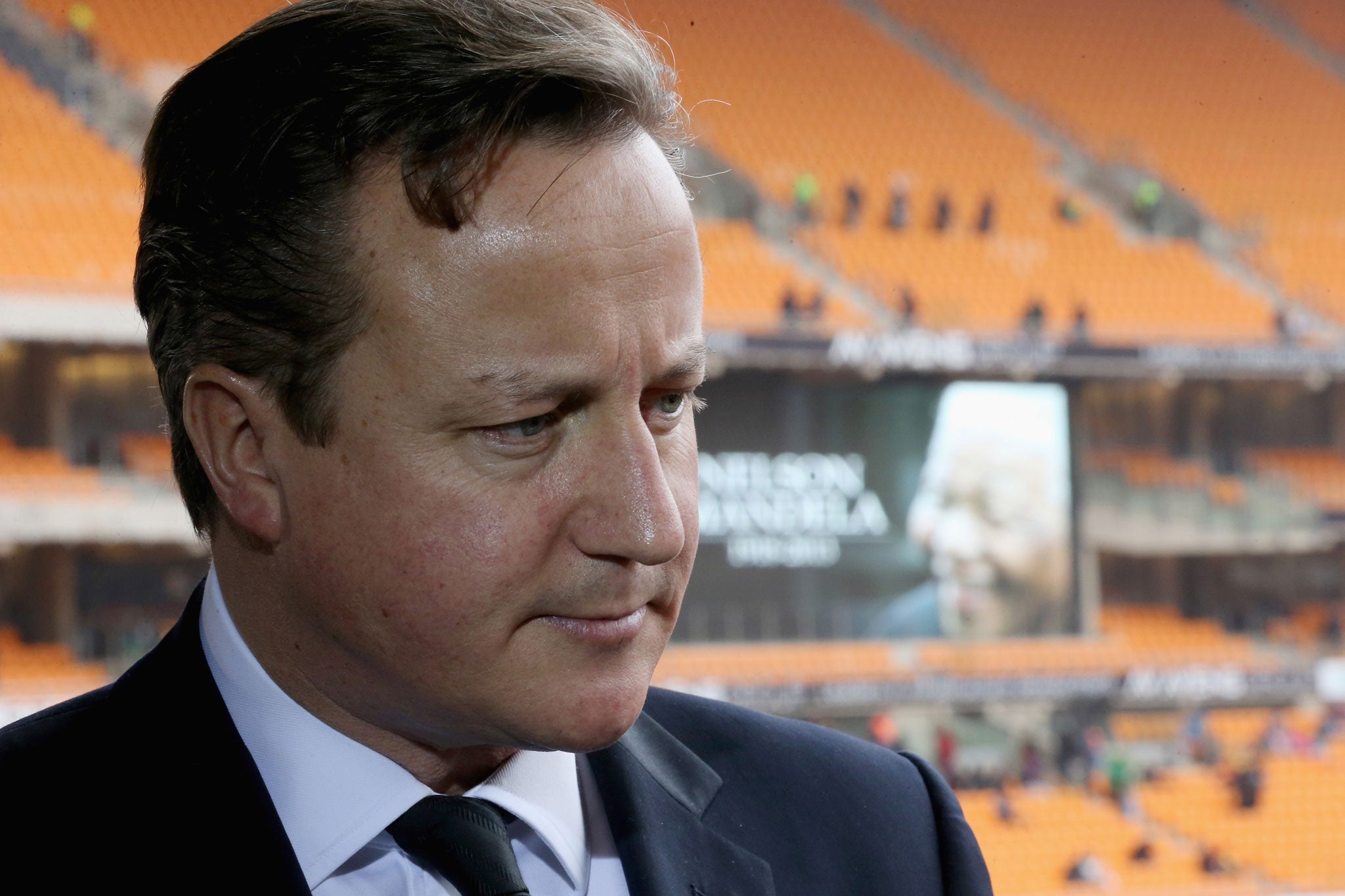PMQs: Inspired by Mandela, Cameron wanted to forgive his opponents
The Prime Minister was more good-natured than usual after his trip to South Africa


Your support helps us to tell the story
From reproductive rights to climate change to Big Tech, The Independent is on the ground when the story is developing. Whether it's investigating the financials of Elon Musk's pro-Trump PAC or producing our latest documentary, 'The A Word', which shines a light on the American women fighting for reproductive rights, we know how important it is to parse out the facts from the messaging.
At such a critical moment in US history, we need reporters on the ground. Your donation allows us to keep sending journalists to speak to both sides of the story.
The Independent is trusted by Americans across the entire political spectrum. And unlike many other quality news outlets, we choose not to lock Americans out of our reporting and analysis with paywalls. We believe quality journalism should be available to everyone, paid for by those who can afford it.
Your support makes all the difference.David Cameron should do Prime Minister’s Questions when he is exhausted more often. Just back from South Africa, with his voice weak, he turned in a low-key, good-tempered performance. He started by saying, “I do agree with him,” when Ed Miliband said it would be wrong to raise MPs’ pay.
Not only did the Prime Minister agree, but he sternly warned that, if the independent body that sets MPs’ pay refused to drop the plan, “no one should rule anything out”. In other words, he would abolish it. Although he also said that no one wanted to go back to MPs deciding their own pay either. Presumably, therefore, he wants to contract out the decision to an “independent” committee of Martians who agree in advance not to increase MPs’ pay, ever.
After two goes, Miliband was bored with asking Cameron to “work with me” and having the Prime Minister reply that “my door is always open”. So it was back to the “cost of living crisis”, with Ed Balls next to him like a South African deaf interpreter, making up hand signals as he went along. “Down” was the new one. It is not right to say living standards are rising, is it? Miliband asked, and Balls pointed down.
The Prime Minister was distinctly unneedled, saying how glad he was that the Opposition were finally asking questions about the economy, and referring to Balls’s shouty response to last week’s Autumn Statement: “Red Ed and Redder Ed.” He did the trick of paraphrasing Red Ed’s question, saying it was, in effect, “We made the most almighty mess - why are you taking so long to clear it up?”
Then, when the Speaker intervened during Miliband’s next question to tell off Tom Blenkinsop, the Labour MP, for shouting across the Chamber, Cameron said it had come to something when the Opposition leader was being “heckled from his own side”.
Miliband was reduced to calling Cameron names, “Utterly complacent and out of touch,” which his interpreter also rendered as a downward-pointing gesture.
The Prime Minister finally responded to Ed Balls, diverting his answer to David Nuttall, a Tory who asked about income tax cuts, to say that the Shadow Chancellor "can dish it out but he can't take it". That hurt because it had the sting of truth, although Cameron overdid it by saying, “I’ll tell you what’s going down - his career.” But he had to say that because the Number 10 line, agreed by his minions, is that all Tories have to call on Miliband to sack Balls as often as possible, so that the Labour leader is forced to keep him.
Really, Cameron, inspired by Mandela’s example, wanted to forgive his opponents today and search for the common ground. He seized on a question from Meg Munn, the Labour MP who asked a question implying that she regretted the failure of the Commons to come to the aid of the Syrian people in August. “I absolutely agree with the honourable lady,” he said. He mostly ignored awkward questions from Labour MPs. Questions from Stella Creasy about page 3 of The Sun and from Tom Harris about why the divorce rate had fallen since the abolition of the marriage tax allowance. Although he couldn’t resist accusing Michael Meacher of “brass neck” in asking about the “brutality and nastiness” of a Tory-led government that enriched the wealthy (but taxed them at a higher rate than Labour) and “left the poor to starve”.
And Cameron closed the session neatly with a sheepish joke about that selfie with Helle Thorning-Schmidt, the Danish prime minister and daughter-in-law of Neil Kinnock, and Barack Obama: “Mandela brought people together, so when a member of the Kinnock family asked for a photo I thought it only polite to say yes.”
Join our commenting forum
Join thought-provoking conversations, follow other Independent readers and see their replies
Comments